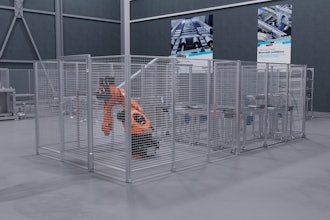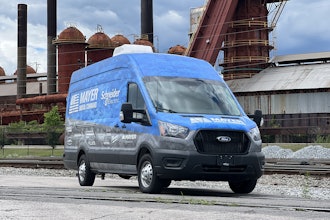
Industrial distributors hear lots of information and suggestions about how they can run and improve their businesses with technology. It can start to feel overwhelming because it seems like everybody offers advice, but nobody offers real solutions.
Based on the experiences and feedback of companies that have successfully transformed their organizations, here are five practical technology best practices that have improved the business processes of other industrial distributors:
1. Don’t Rely on Piecemeal Tech
All growing businesses are full of intricate moving parts that become more complicated with added locations, larger warehouses and expanded product portfolios. Warehousing, inventories, orders, sales, shipping, reporting, regulatory compliance requirements — for companies to be successful, it all has to be orchestrated to streamline supply chain activities for improved profits.
Many tech solutions claim to manage one of these areas well, which may be true. But it’s never a good idea to implement too many “best” programs and then try to make them work together. The programs in such a piecemeal tech stack cannot communicate with each other — trapping data in silos. When data is siloed, it can’t be accessed when it’s needed most, which leads to decisions being made with incomplete information that can cause mistakes and limit business growth.
Instead, look for a single technology platform that can handle all business management needs — from warehousing to shipping and beyond. This secures data in a single system that’s accessible anytime, anywhere. Businesses can then rely on information that is current, accurate and ready for strategic decisions.
2. Become Mobile
To keep up with fast-paced commerce and gain a competitive advantage, industrial distributors are updating business processes for increased agility and mobility. In fact, the consequences of not being mobile are costly — limiting a company’s ability to expand into new markets and wasting time and effort because employees can’t access the system away from the office. Further procedural inefficiencies erode profit margins.
Mobility prevents these issues.
Technology is central to mobility. Employees need to be able to access companywide data safely and securely on any mobile device, anytime, anywhere. Mobility can also improve sales strategies and the bottom line for companies looking to build stronger relationships with customer relationship management (CRM), or wishing to expand into online storefronts or digital marketplaces to grow sales.
3. Optimize Inventory and Supply Chain Management with Intelligent Technology
This may seem obvious, since inventory optimization and supply chain management are so fundamental to industrial distribution. But because they’re so intricate, they’re actually two of the hardest processes for a distributor to get right.
Approaching inventory optimization and supply chain management with manual processes is risky. People make mistakes, and downstream supply chain issues, such as weather, labor disputes or civil unrest, impact supplier shipments. This leads many industrial distributors to overstock items to buffer supply issues. However, overstock increases carrying costs and dead stock risk. It also ties up crucial working capital that could be better spent on equipment, facilities, staff or sales efforts to grow the business. Manual processes also lead to pricing mistakes, higher returns due to packing and shipping mistakes, and higher customer churn.
But a wise technology investment that can automate the inventory replenishment process and monitor the supply chain in real-time can sidestep these issues — removing the human element from tedious work and giving employees the freedom to focus on value-added tasks.
4. Build a Superior Customer Experience
Whether a company is selling business-to-business (B2B) or direct-to-consumer (D2C), the customer is the most important part of the industrial distribution business. Happy, loyal customers lead to a happy, growing bottom line. But today’s customers have high expectations. They want convenience. They want a personalized experience. They want to be able to quickly and easily interact with businesses on their terms — online, by phone, in person, via a mobile app, etc.
This can be a challenge since companies need to keep track of all customer data — orders, contracts, support cases, communication, contact names, varied business addresses and so on. That kind of record-keeping is the only way to provide truly personalized service. It also helps companies track payments, identify strategic customers, and gain insights to strengthen relationships with those customers.
To achieve this, industrial distributors need a business management solution with native CRM features and built-in strategies for handling omnichannel sales.
5. Automate Regulatory Compliance and Quality Control
Industrial distributors face thousands of regulatory requirements, from vendor requirements for shipping and labeling to government requirements for taxes and item transport to regulations from independent safety organizations. It can be a major headache. Industrial distributors today have to know what the regulations are, who they’ve been issued by, and how to remain in compliance to avoid costly fines. They also need to maintain records for compliance reporting in case of unexpected audits or safety issues — such as product recalls — that could pose significant financial risk without proper documentation.
Doing all this by hand is impossible, and it is best to automate regulatory compliance and quality control. There is tremendous value in having a system with lot and serial number traceability and quality control to ensure that products meet industry and customer standards.
James Mallory is the senior product marketing manager, manufacturing, distribution, field service at Acumatica.























